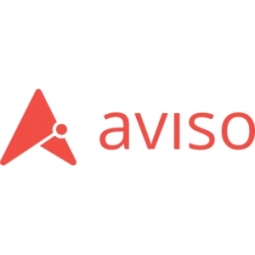Download PDF
Aviso Drives Digital Sales Transformation At Honeywell With Conversational Intelligence, Persona Based Nudges, And Custom Solution To Build An Integrated CRM Platform
Technology Category
- Analytics & Modeling - Predictive Analytics
- Application Infrastructure & Middleware - API Integration & Management
Applicable Industries
- Electronics
Applicable Functions
- Sales & Marketing
- Business Operation
Use Cases
- Predictive Maintenance
- Supply Chain Visibility
Services
- Software Design & Engineering Services
- System Integration
The Challenge
In 2018, Honeywell embarked on a strategic initiative to implement a global design model (GDM) for its CRM solution. This initiative was a result of a high-level blueprint of recommendations, which were gathered from over a hundred Honeywell employees across various functions. The next step for Honeywell was to find a suitable sales forecasting tool. The goal was to improve sales forecast accuracy across business units, enable informed decision-making, and predict short and long-term performance. However, Honeywell faced several challenges. These included disconnected CRM instances maintained across business units, low accuracy in predicting short and long-term deals and opportunity performance, lack of real-time deal insights, and overspending on underutilized CRM licenses and ineffective call recording tools.
About The Customer
Honeywell is a multinational conglomerate company that produces a variety of commercial and consumer products, engineering services, and aerospace systems. The company operates in four business units: Honeywell Aerospace, Home and Building Technologies (HBT), Safety and Productivity Solutions (SPS), and Honeywell Performance Materials and Technologies. Honeywell is known for its innovation in performance materials and technologies, safety and productivity solutions, and aerospace systems. The company has a global workforce and serves customers worldwide.
The Solution
Aviso AI provided a solution to Honeywell's challenges. They offered unified forecasting with roll-ups for managers across different teams and businesses. Aviso AI also customized the solution by incorporating bespoke columns and hierarchies. This was further enhanced with persona-based nudges to win more deals and sentiment and intent-based conversational intelligence captured in workflow from calls, web meetings, and emails. This comprehensive solution integrated key sales processes onto a single sales AI platform, providing a 'single pane of glass' solution that offered real-time business insight to every user. With improved forecast accuracy, sales managers and leaders were able to shift their focus from forecasting and reporting to team building and better coaching.
Operational Impact
Quantitative Benefit
Related Case Studies.

Case Study
Remote Temperature Monitoring of Perishable Goods Saves Money
RMONI was facing temperature monitoring challenges in a cold chain business. A cold chain must be established and maintained to ensure goods have been properly refrigerated during every step of the process, making temperature monitoring a critical business function. Manual registration practice can be very costly, labor intensive and prone to mistakes.

Case Study
Cloud Solution for Energy Management Platform-Schneider Electric
Schneider Electric required a cloud solution for its energy management platform to manage high computational operations, which were essential for catering to client requirements. As the business involves storage and analysis of huge amounts of data, the company also needed a convenient and scalable storage solution to facilitate operations efficiently.

Case Study
Leveraging the IoT to Gain a Competitive Edge in International Competition
Many large manufacturers in and outside Japan are competing for larger market share in the same space, expecting a growing demand for projectors in the areas of entertainment, which requires glamor and strong visual performance as well as digital signage that can attract people’s attention. “It is becoming more and more difficult to differentiate ourselves with stand-alone hardware products,” says Kazuyuki Kitagawa, Director of Service & Support at Panasonic AVC Networks. “In order for Panasonic to grow market share and overall business, it is essential for us to develop solutions that deliver significant added value.” Panasonic believes projection failure and quality deterioration should never happen. This is what and has driven them to make their projectors IoT-enabled. More specifically, Panasonic has developed a system that collects data from projectors, visualizes detailed operational statuses, and predicts issues and address them before failure occurs. Their projectors are embedded with a variety of sensors that measure power supply, voltage, video input/ output signals, intake/exhaust air temperatures, cooling fan operations, and light bulb operating time. These sensors have been used to make the projector more intelligent, automatically suspending operation when the temperature rises excessively, and automatically switching light bulbs. Although this was a great first step, Panasonic projectors were still not equipped with any capability to send the data over a network.








